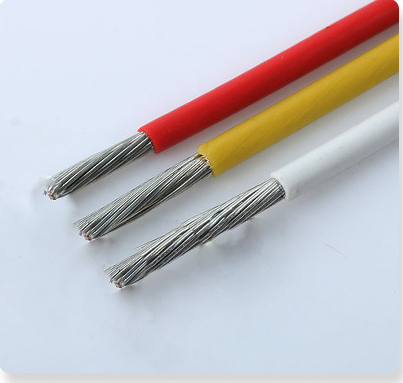The Benefits of Teflon Insulated Wire in Electrical Applications
When it comes to electrical wiring, the selection of proper insulation material is crucial for ensuring optimal performance and safety. One popular choice for insulation is Teflon, a brand name for polytetrafluoroethylene (PTFE) that offers several advantages over other options. In this article, we will explore the various benefits of using Teflon insulated wire in electrical applications.

1. High Temperature Resistance
Teflon insulated wire is known for its exceptional resistance to high temperatures, both low and high. It can withstand extreme heat up to 200°C without losing its electrical properties or degrading. This makes Teflon-insulated wire ideal for applications that involve high-temperature environments, such as aerospace, automotive, and industrial settings.
2. Excellent Chemical Resistance
Another advantage of Teflon insulated wire is its exceptional resistance to various chemicals. Teflon is highly inert and non-reactive, making it unaffected by most common chemicals, oils, and solvents. This resistance to chemical corrosion ensures the longevity of the wire, making it suitable for environments where exposure to corrosive substances is expected.
3. Electrical Insulation Properties
Teflon is an excellent electrical insulator with a high dielectric strength. It provides good insulation against current leakage and prevents short circuits. Due to its low dielectric constant and high breakdown voltage, Teflon-insulated wires can maintain stable electrical performance even in high-frequency applications, ensuring minimal signal loss and superior transmission quality.
4. Low Friction and High Flexibility
The low friction coefficient of Teflon makes it easy to handle and install the wire in tight spaces. Its smooth surface also reduces wear and tear during bending and flexing, contributing to the wire's overall durability. The high flexibility of Teflon-insulated wire allows it to be easily routed and installed in complex wiring configurations, saving time and effort during the installation process.
5. Moisture and Weather Resistance
Teflon insulated wire exhibits excellent resistance to moisture, humidity, and weather conditions. It is not affected by water absorption, ensuring consistent performance even in wet environments. This resistance to moisture intrusion makes Teflon-insulated wire suitable for outdoor applications and areas prone to moisture or condensation.
Conclusion
Teflon insulated wire offers numerous advantages over other insulation materials, making it a preferred choice for various electrical applications. Its high temperature resistance, chemical resistance, excellent electrical insulation properties, low friction, high flexibility, and moisture resistance make it a reliable solution for demanding environments. Whether in aerospace, automotive, industrial, or other sectors, Teflon-insulated wire enhances electrical performance while ensuring safety and durability.


